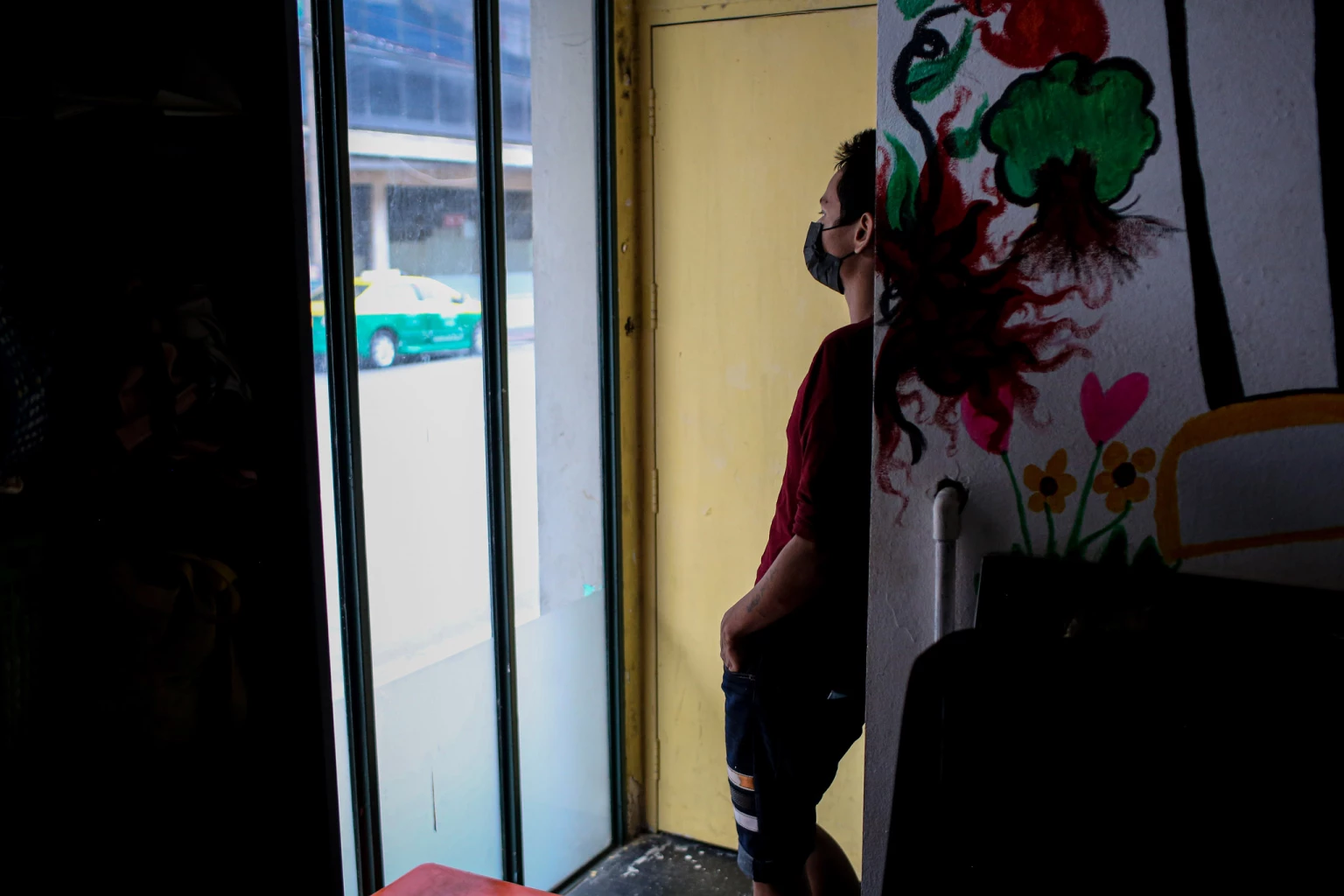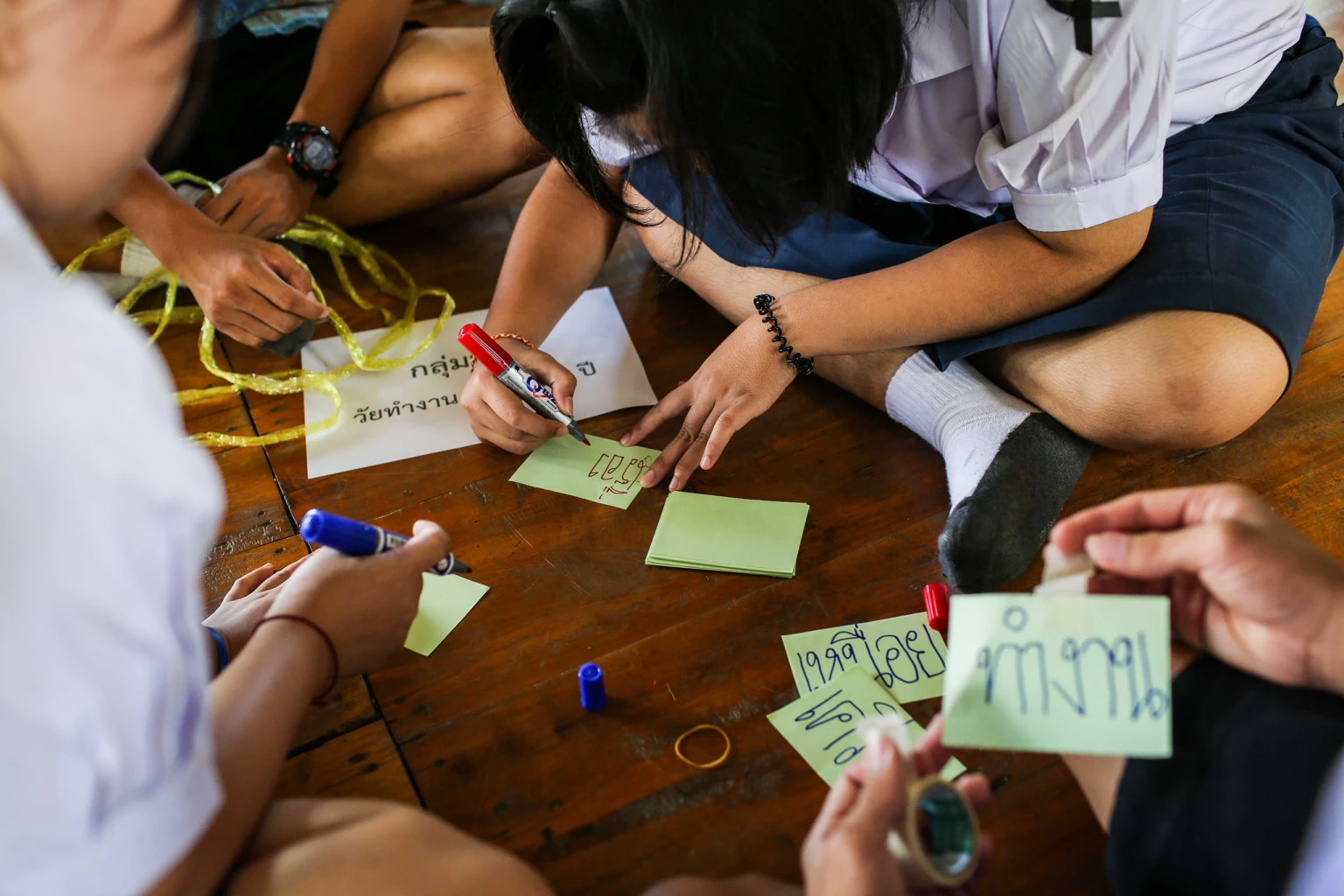March 23, 2023
BANGKOK – The rising share of youth who are Not in Employment, Education, or Training (NEET) in Thailand represents a concerning social and economic phenomenon.
While nearly 1.4 million (or 15 %) youth aged 15-24 years in Thailand are NEET, a new Unicef-led study released today finds most of them (68 %) lack the motivation to develop skills or work due to a perceived lack of opportunities.
The new study, In-depth Research on Youth Not in Employment, Education or Training in Thailand, is the first in-depth study that provides a comprehensive picture of youth NEET in Thailand.
Conducted by Chulalongkorn University and supported by Unicef, the study investigates the factors that contribute to young people’s exclusion from the education system and the labour market, identifies gaps in existing policies and services, and provides recommendations to address the issues.

About 70 % of youth NEET are female, most of whom dropped out of school due to pregnancy or caring responsibilities, the study noted.
Yet, the causes of NEET are complex and multifaceted. Factors such as gender, ethnicity, health, low educational attainment, lack of opportunities and support, poor socioeconomic conditions as well as skill mismatch are putting young people at risk of becoming NEET.
“The large proportion of youth who are not participating in education, employment or training is a major concern in Thailand, especially when the country is now one of the fastest ageing societies,” said Kyungsun Kim, Unicef Representative for Thailand.
“This means young people today have to be much more capable, skilful, and productive than the previous generation in order to sustain the country’s social and economic development. It also means that we have an urgent task to help them get back on track where they have access to quality education and skill training that support their needs, prepare them for the job market, and become citizens that contribute to Thailand’s prosperity and equality.”
The Covid-19 pandemic has worsened the situation and upsurged the number of NEETs. In addition to learning losses, it has led to longer job search periods, job losses, and reduced opportunities for education and training among young people, which also increased their discouragement in education, training, and finding jobs.

According to the National Statical Office, the number of youth in the labour force declined from 4.8 million in 2011 to 3.7 million in 2021. The unemployment rate among youth aged 15-24 years old increased from 5.8 % in 2011 to 6.5 % in the third quarter of 2022 which was significantly higher than the adult unemployment rate at 0.7 %.
In a separate survey conducted by the Children and Youth Council of Thailand, the Department of Children and Youth, and Unicef in 2022 which interviewed some 55,000 young people aged 10-25 years nationwide, less than 40 % of the respondents feel that the current education system prepares them for the job market, while only 36 % have a positive experience with online learning sessions provided by their schools.
The youth NEET research also points out that a lack of policy coherence as well as disaggregated and limited services across employment, education, and training services are among key challenges in addressing the youth NEET issues and would require leadership and commitment at the highest level.
“We recognize the urgency to address Thailand’s NEET issue and to support them to be able to re-enter education or access quality skill training and decent employment,” said Surachai Chaitrakulthong, Vice Minister for Labour. “One way to solve the NEET issue is for different stakeholders to work together to deliver integrated services for the NEETs, including to offer skill development, social assistance and support for their participation in decision making as well as to provide equal opportunity for them to access education, training and decent employment. This shall enable them to live a quality life and successfully transition to adulthood and thrive in the 21st-century world.”
Unicef is calling for immediate action to tackle these challenges, with a proposal to establish one-stop service centres across the country to provide integrated and targeted support for young people and NEETs. These centres would offer a comprehensive package of services, including consultations, engagement activities, financial support, and accessible funding options to help youth get back on track. This proposal is one of Unicef Thailand’s 7 asks for the general elections.

“It is clear that youth NEET are exposed to high risk of poverty and social exclusion and often lack the means to improve their skills and competencies,” Kim added. “Increasing support, mentorship and opportunities and promoting social inclusion among disadvantaged youth must be a prime policy for Thailand if it wants to become a high-income country with shared prosperity and equity.”


